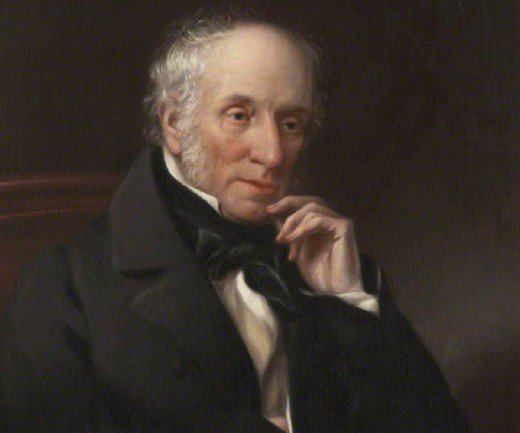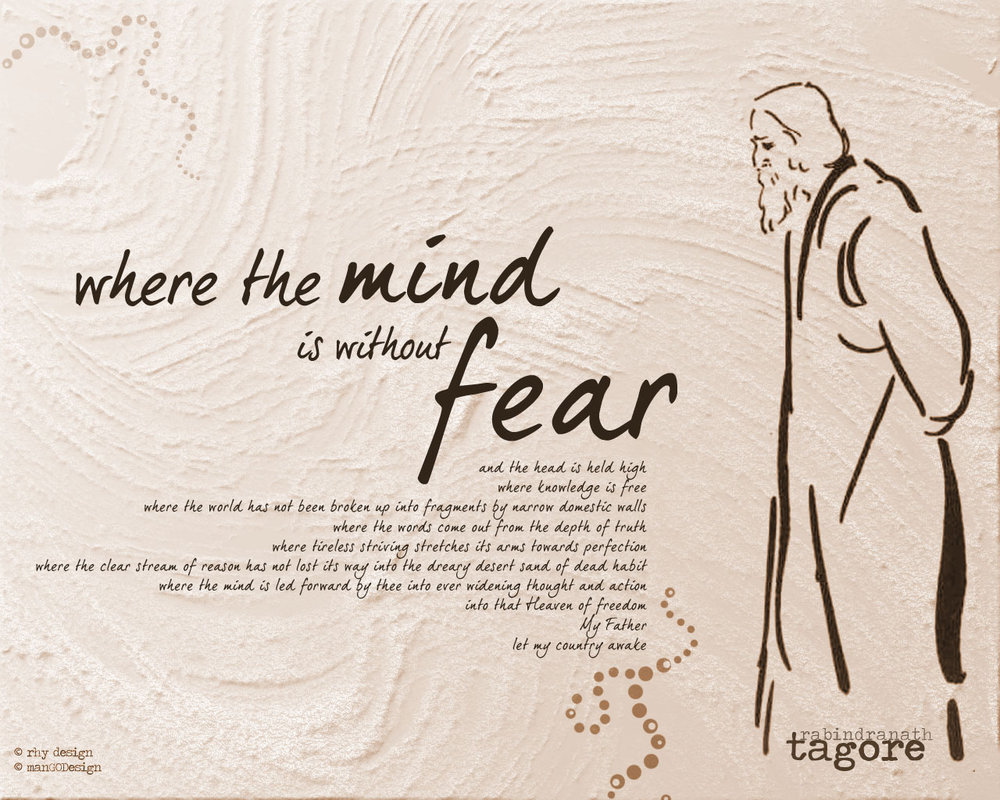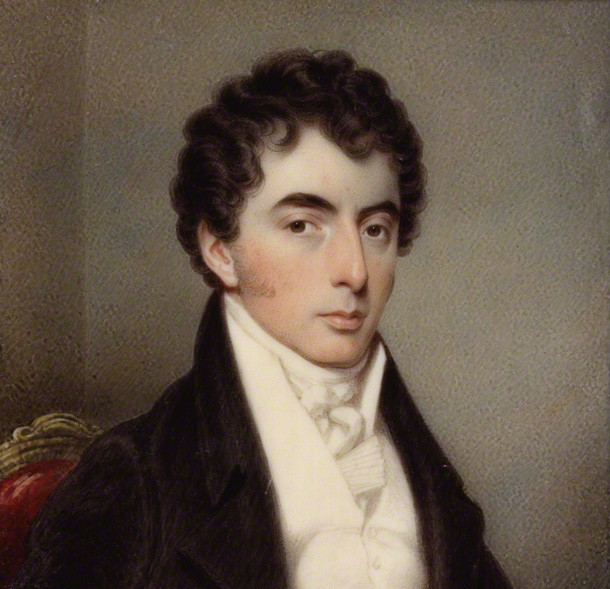I Had Gone a Begging by Rabindranath Tagore is the fiftieth poem from his Nobel Prize winning collection, Gitanjali. Written in blank verse, this poem is the story of a beggar, who is the poet himself. Narrated in a first person account, the poet has directly addressed the poem to the King of King’s. He begins by giving voice to his initial selfish and greedy thoughts on seeing the arrval of the golden chariot and then moves on to describing his utter shock when the man alights from the chariot and spreads his hand in front of the beggar, asking him for alms. The irony of the situation both amuses and confuses the beggar, but gathering his wits, he gives one little grain of corn to the man.
When he goes back and sees that the little grain of corn has been replaced by an equivalent amount of gold, he is filled with remorse. He laments that had he had a heart as big as the man’s, he would have given away all his belongings to him. This is also when he realises that the man in the chariot was no commoner, but God himself. This incident incites a spiritual awakening within the poet as he realises that materialistic things lose all their value, when compared to the real riches, which are kindness, generosity and empathy.
Through this poem Tagore has brought into focus the increase in the importance that is endowed upon materialistic goods and how man is driven, not by love and compassion, but by miserly approach, greed and never ending demands. The beggar wished for all his problems to be solved by the charity of the man in the chariot, but without any consideration for the man in the chariot. He is willing to accept the man’s riches, but when it comes to giving him something, he is reluctant and miserly. Man has becomes such that he puts self above everything else.
Suggested Reading: You might be interested in going through the summary of I had Gone a- Begging
Poetic Devices in I Had Gone a- Begging
Hyperbole
The golden chariot has been described as a “gorgeous dream”. This exaggeration gives the reader an idea of the extent of the chariot’s glamour and beauty. The wealth of the man on the chariot can also be deduced from this phrase.
The man on the chariot is referred to as the “King of kings”. This is done to bring the reader’s attention to his stature, power and wealth. It is not that the man literally was the king of kings, but the reference works in creating a mental image of his position in the mind of the readers.
Metaphor
The golden chariot is a metaphor for riches and wealth. Gold is always a symbol of prosperity. Hence, the chariot being of golden colour indicates that the man to whom it belonged to was immensely wealthy.
The poet’s miserly nature is symbolised by the small grain of corn that he gave to the king of all kings. The small grain of corm acts as a metaphor for the greedy and selfish nature of man; his urge to own everything and give nothing in return. On the other hand, the small grain of gold represents the exact opposite. It is representative of generosity, kindness and magnanimity that is beyond normal human nature.
Split into five stanzas, each stanza is not an arrangement of lines, but the entire poem is in the form of a monologue. There is no definitive rhyme scheme and the poem is a blank verse.
Imagery
The imagery in this poem, though not elaborative, but is descriptive. The first line itself, “I had gone a-begging from door to door in the village path” gives the reader a fair idea that the setting is that of a village pathway and that the poet is an impoverished beggar. “Golden chariot appeared in the distance like a gorgeous dream” describes the wealth of the man in the chariot and gives a sense to the reader that it was like a dream come true for the beggar. The vocabulary used throughout the poem elucidates the poet’s emotions and enables the reader to picture his facial expressions and reactions.
Central Idea of the poem I Had Gone a- Begging
I had gone a-begging by Rabindranath Tagore is based on the idea of the act of giving. Humans by nature are selfish. Thus, when the Beggar poet sees the golden chariot the first thoughts in his head are of how the alms given by the king of king’s would eradicate his poverty for forever. But, when the man himself asks the beggar for something, he is baffled and very reluctantly parts with one small grain of corn. When he realises the return for that small grain of corn, which is when it strikes to him that when man is able to see beyond the materialistic pleasures of life, which is when he acquires true spiritual awakening.
Theme
Rabindranath Tagore’s I had Gone a-begging is a poem whose central theme revolves around man’s lust for materialistic objects, and his subsequent realisation that actual satisfaction lies in the act of giving, not in the collection of returns. There is an underlying theme of spiritual awakening as when the poet realises that it was God who had spread his palms in front of him, asking for alms, his conscience awakens and he realises how greedy he was and deeply regrets not giving his all to God. A human’s miserly attitude, greed and putting self above service are other sub-themes in the poet.
Tone
Since the poem is actually an incident, the tone of the poet is narrative. There are tones of delight and surprise when the poet describes the arrival of the golden chariot and what difference it might make to his life. The poet’s shock is evident when the King of kings spreads his hands in front of him. Also, his remorse in the end is shown when he mentions how he wept bitterly. The phrase “wished that I had had the heart to give thee my all”, is indicative of the poet’s regret.
Conclusion
A work of the master, Rabindranath Tagore, I Had Gone a Begging is a poem that imparts a moral lesson through the narration of a poem. A beggar asking for alms from door to door chances upon a wealthy man in a golden chariot and imagines that his charity will change his life. But it so happens that the man reverses the situation by spreading his palms in front of the beggar. The beggar reluctantly parts with his little grain of corn and that night, when he goes home and empties his bag, he realises that his life has indeed changed forever. He finds a grain of gold, equivalent to the size of the grain of corn that he had given to the King of all kings. That is when he realises that the man was no commoner but was god himself. It taught him the impermanence of materialistic commodities and the importance of the act of giving and kindness. This poem is an exemplar of how God gives back in the same amount what we give him, but with a much larger heart. It is a tale of the spiritual awakening of a man. This analysis is written by Ankita- our contributing author.
Some online learning platforms provide certifications, while others are designed to simply grow your skills in your personal and professional life. Including Masterclass and Coursera, here are our recommendations for the best online learning platforms you can sign up for today.
The 7 Best Online Learning Platforms of 2022
- Best Overall: Coursera
- Best for Niche Topics: Udemy
- Best for Creative Fields: Skillshare
- Best for Celebrity Lessons: MasterClass
- Best for STEM: EdX
- Best for Career Building: Udacity
- Best for Data Learning: Pluralsight
















Well I guess I don’t have to spend the weekend fignuirg this one out!